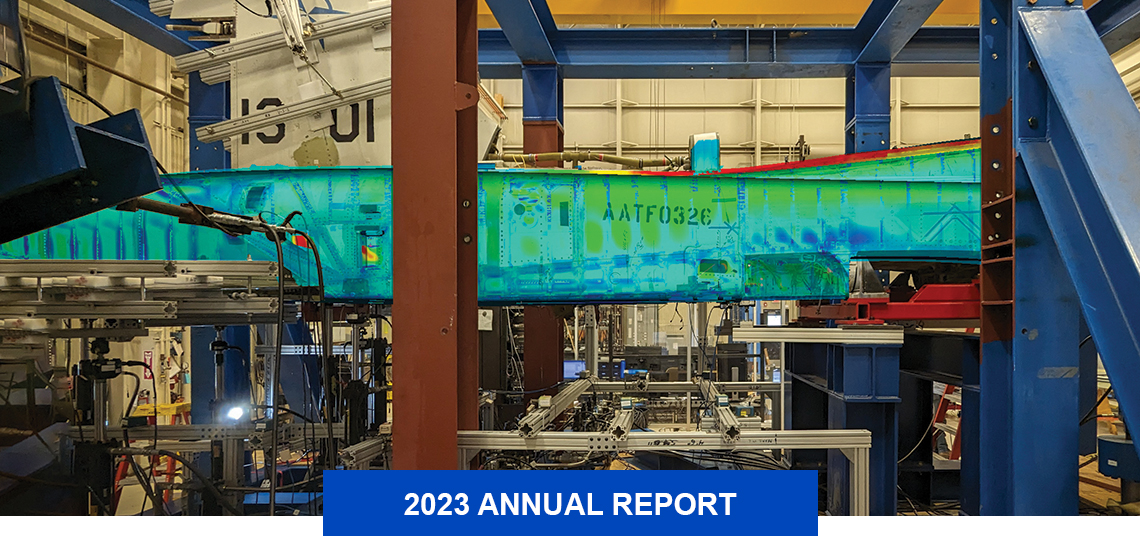
About the Header
For over 45 years, SwRI has supported the USAF ASIP program to ensure aging aircraft remain structurally viable. This image shows finite element analyses overlaid on a T-38 Talon to indicate areas experiencing higher (red) and lower (blue) stress.
Southwest Research Institute supports the manufacturing industry with advanced automation technology, creating adaptable tools and providing workforce training. We also help ensure that aging infrastructure and new products meet or exceed standards for safety, durability and performance. For more than 35 years, SwRI has been developing innovative automation and robotics solutions. World-class experts and experienced engineers work in automation engineering facilities, including state-of-the-art laboratories and large prototyping areas for development.
Manufacturing
SwRI celebrated the 10-year anniversary of ROS Industrial® (ROS-I), an open-source project that advances industrial applications of the Robot Operating System (ROS). SwRI helped found ROS-I and continues to support the organization by hosting training, organizing events and curating software repositories. SwRI’s ROS-I innovations include robotic finishing techniques for cast metal components, enabling a human-in-the-loop to use simple tools such as paint pens to guide the robotic processing. In another robotics project, SwRI’s open-source robotics tools allowed generalists to build advanced robotic applications using a unique computer-aided-design environment and end-user feedback.
For 28 years, SwRI has operated the Texas Manufacturing Assistance Center, supporting small and medium manufacturers in South Central Texas with automation and process improvement solutions. Regional demand for manufacturing assistance is growing with reshoring trends and growth in the automotive and semiconductor industries.
SwRI designed, fabricated and tested novel carbon-fiber-reinforced polymer composite components for high-risk applications. Engineers investigated using carbon nanotubes as hybrid reinforcements and evaluated adhesive bonding responses to surface preparations for these unique materials. The team is evaluating the structural integrity of the components using nondestructive acoustic analyses and standardized mechanical testing.
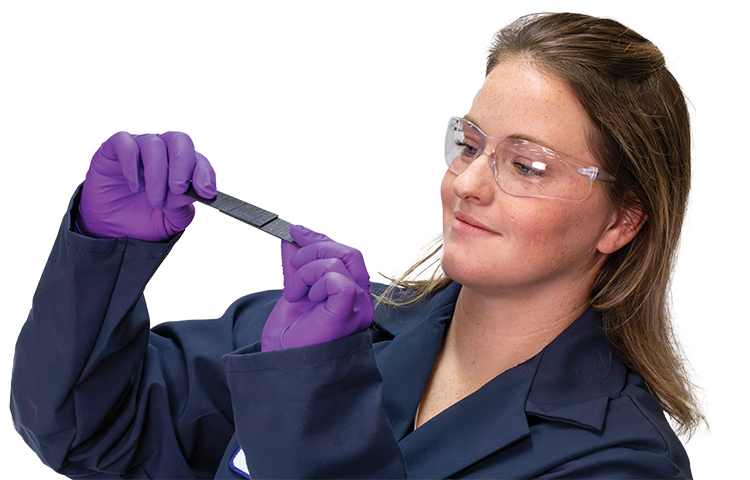
SwRI designs, fabricates and evaluates novel carbon-fiber-reinforced polymer composite components for high-risk applications.
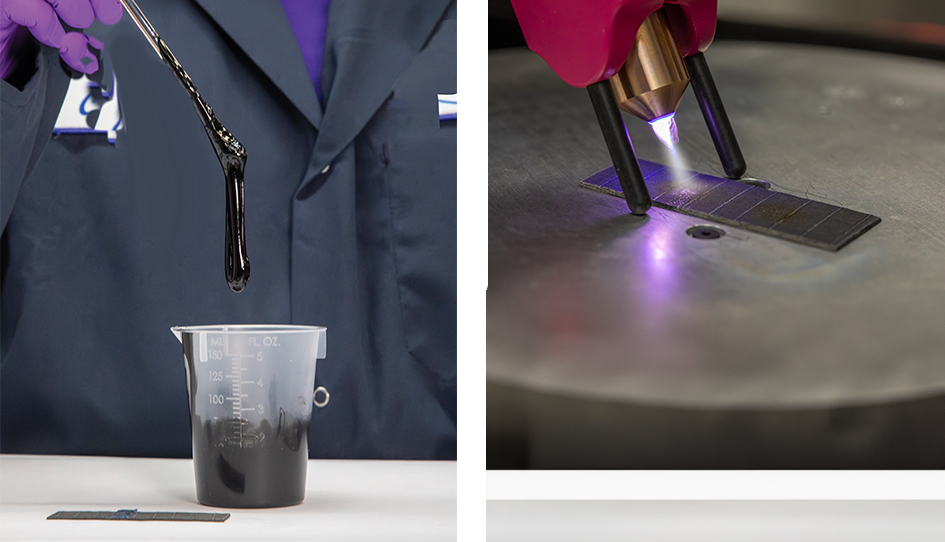
SwRI designs, fabricates and evaluates novel carbon-fiber-reinforced polymer composite components for high-risk applications.
Reliability
For more than 45 years, SwRI has supported the U.S. Air Force’s Aircraft Structural Integrity Program, comprehensively evaluating airframes to extend the life of aging military fleets. In 2023, SwRI began developing digital twins of A-10 and T-38 aircraft. These digital representations of the aircraft contextualized in a digital simulation of their environment will help researchers understand real scenarios the airframes must withstand. SwRI also deploys robotics to sustain aircraft and to inspect infrastructure, including using autonomous drones.
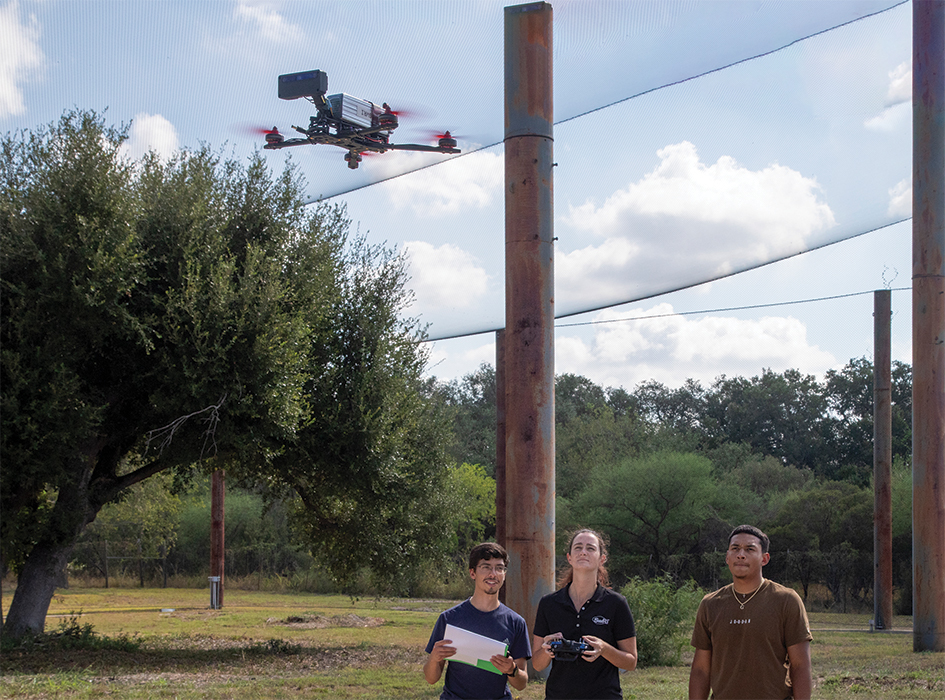
Engineers evaluate drones inside this one-acre tented area that does not require FAA flight approval.
Engineers recently converted a one-acre tented facility to evaluate unmanned aerial systems in a GPS environment. Operating a drone inside the contained space does not require FAA approval, allowing initial testing of unproven systems and flight algorithms. SwRI also maintains provisions to allow open-air testing of more mature systems on campus, providing a range of check-out capabilities.
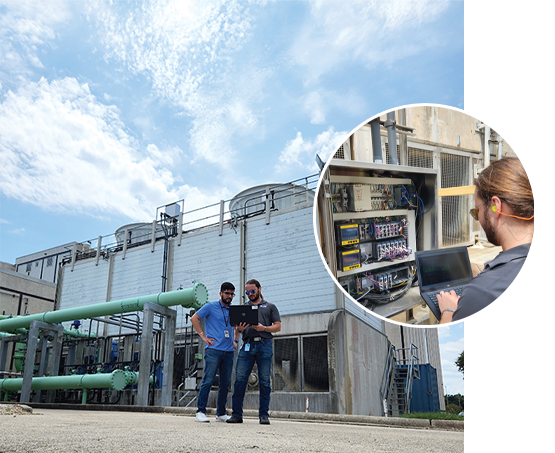
To support condition-based maintenance, SwRI installed 500 sensors to monitor 64 installations at NASA’s Johnson Space Center in Houston, so maintenance is performed as needed while avoiding unexpected failures and downtime.
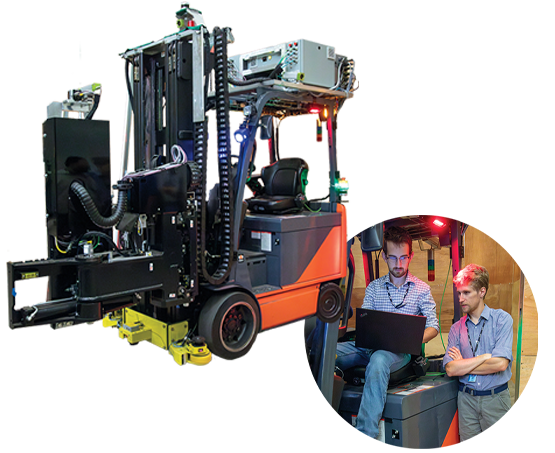
SwRI adapted commercial equipment to develop a fully autonomous forklift capable of conducting warehouse operations on its own, keeping personnel away from hazardous materials while complying with industry standards.
